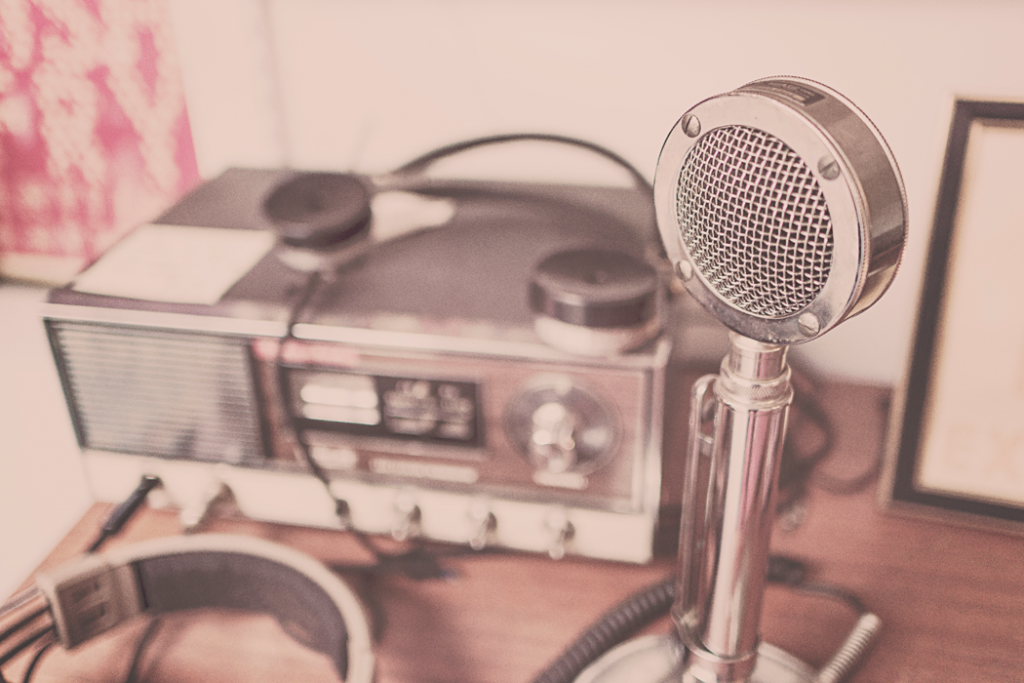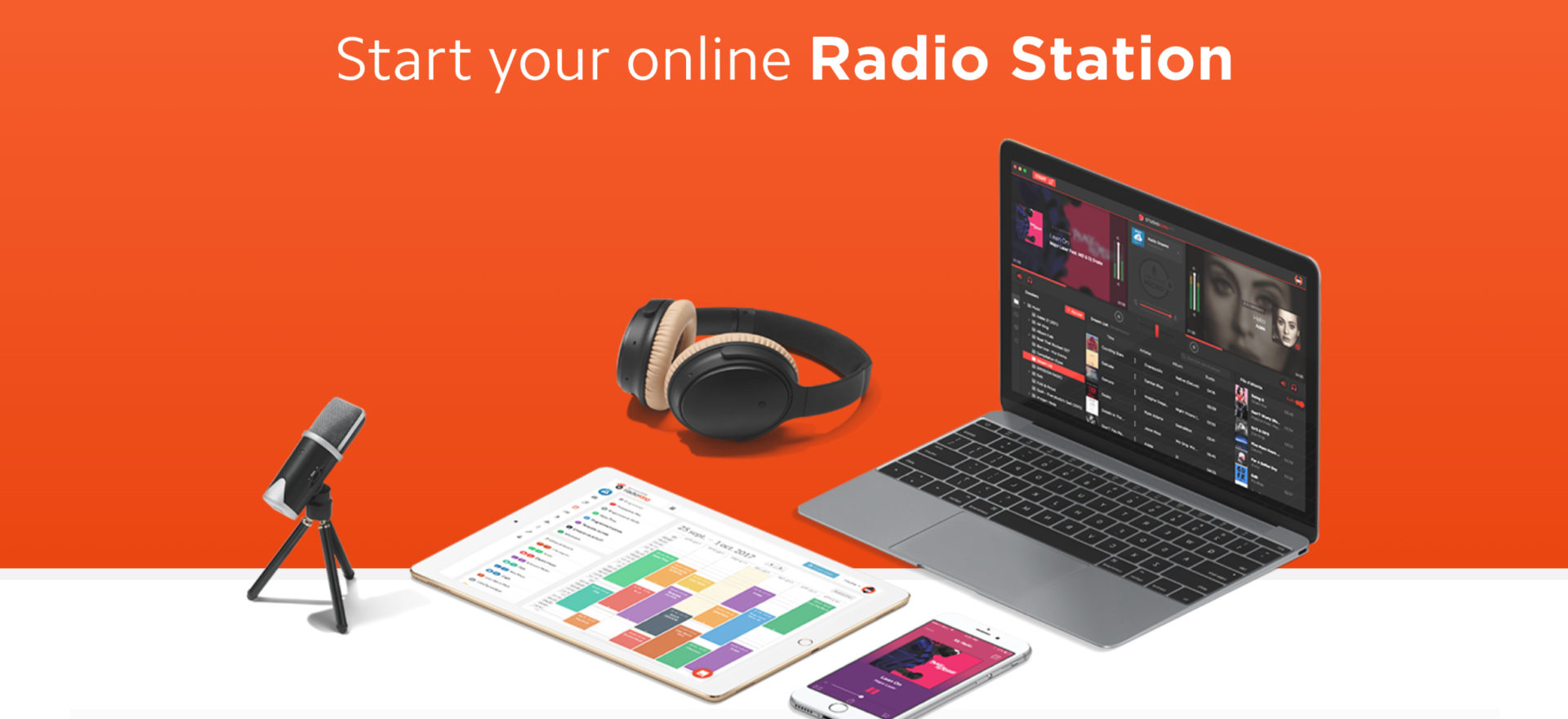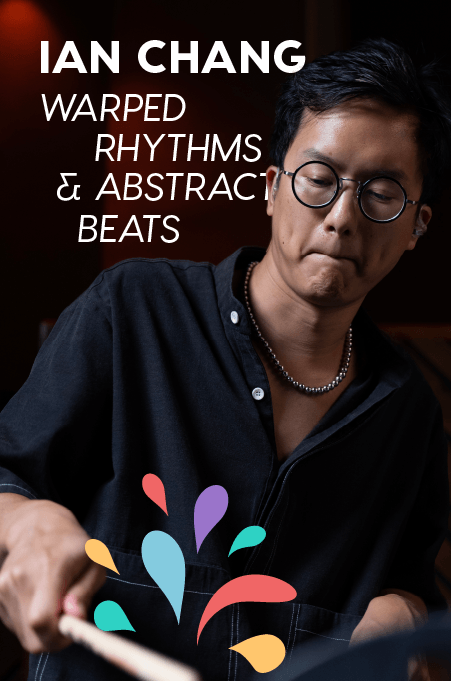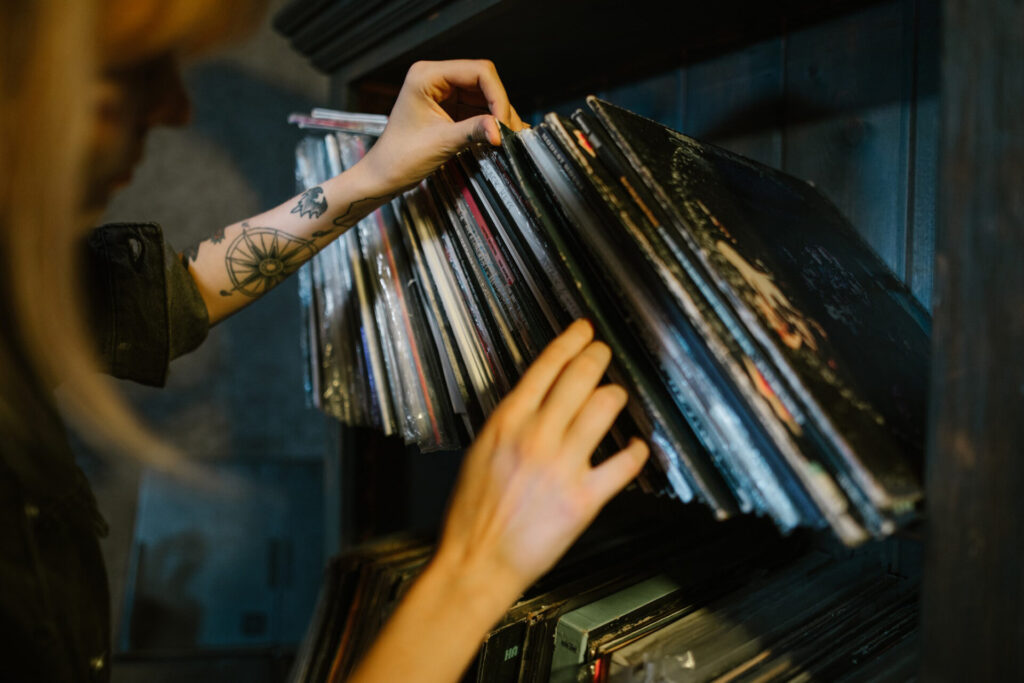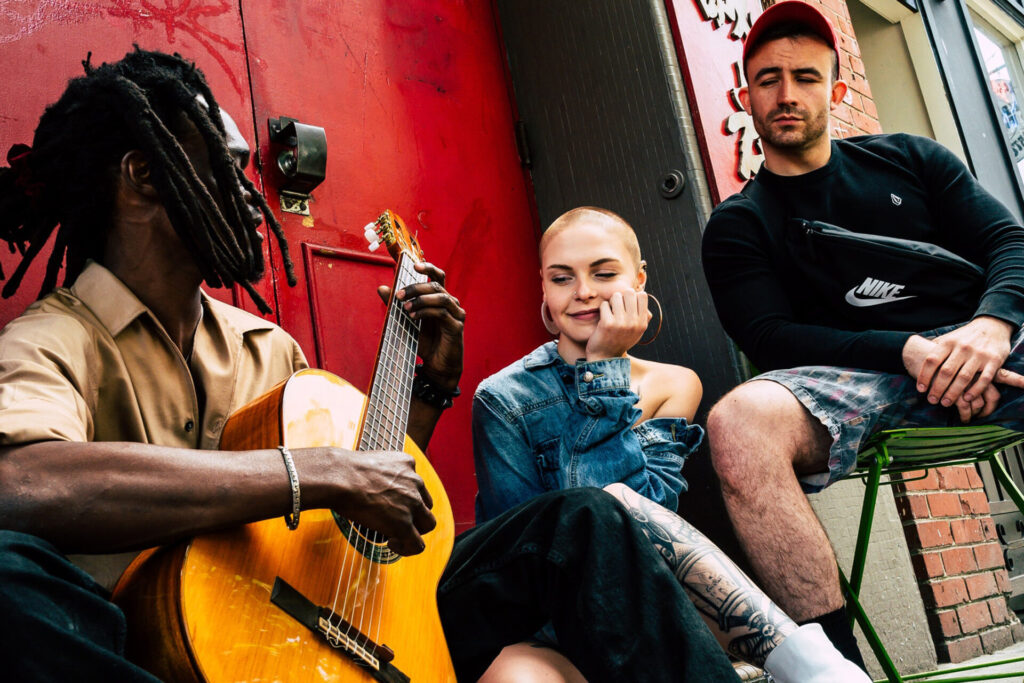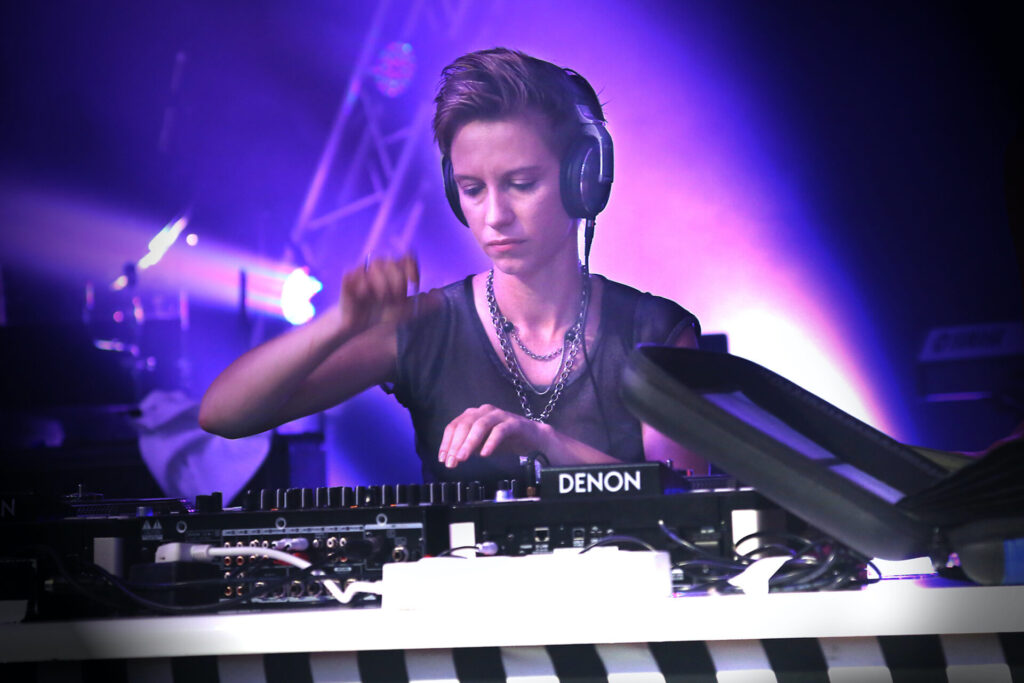+ Learn from Grammy-winning pop artist Kimbra how to harness the full creative potential of your voice in song. Check out her course.
By Anaïs Salenbier of Radio King
As an independent artist, you’re much more than just a musician. You have to juggle music production and songwriting as well as marketing and promotion. Finding new ways to get your music out into the world can be challenging. With over 200,000 new songs being added to Spotify daily, it can be hard to stand out from the crowd.
You may be surprised to hear that radio remains one of the most popular ways of discovering new music, so why not use that to your advantage?
Let’s take a look at five ways to use radio to promote your new release!
1. Pitch FM radio stations.
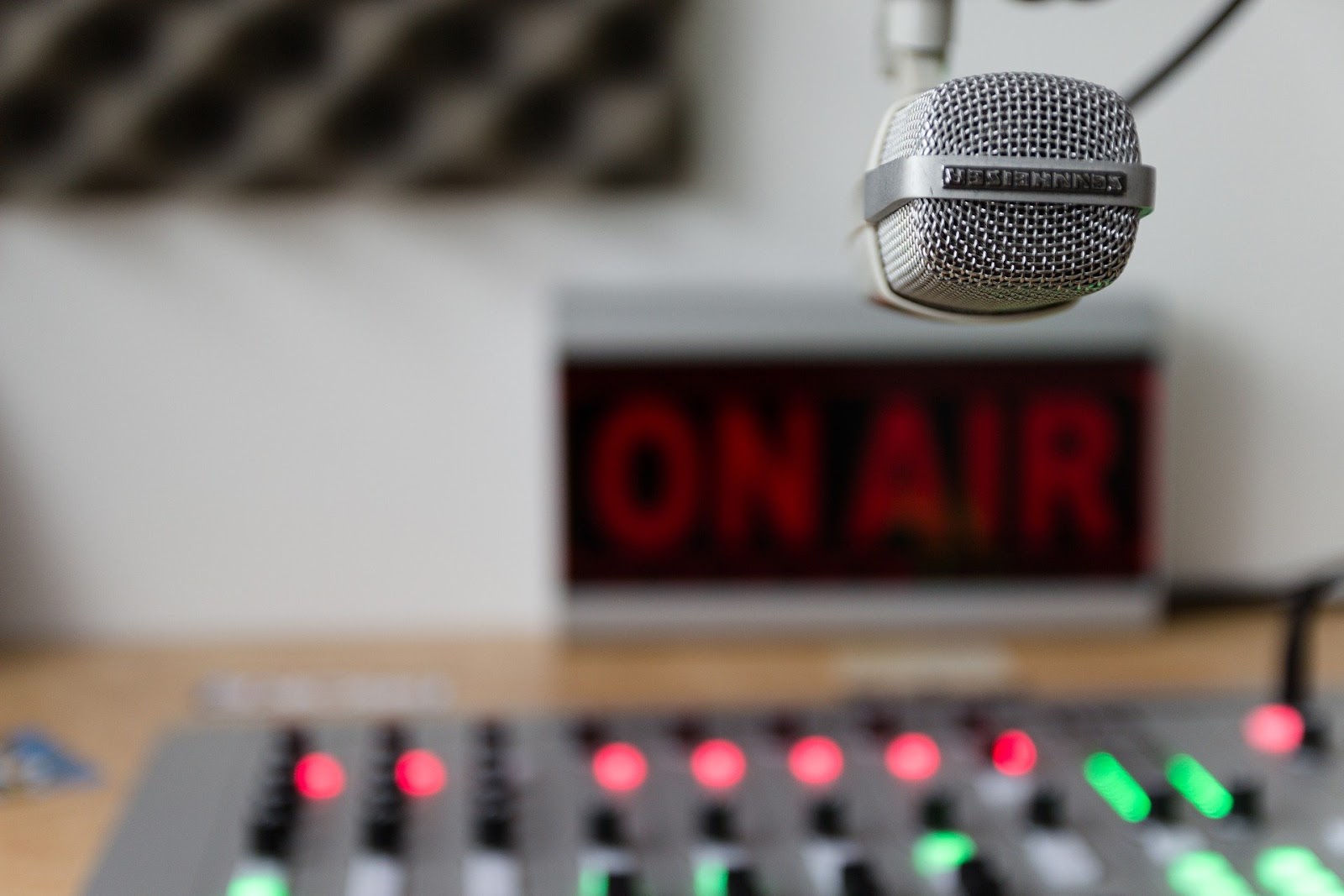
Getting your song played on FM radio is the dream for many musicians, but with the hundreds of thousands of stations out there, how do you give your content the best chance?
It can be tempting to share your singles with as many radio stations as possible, doing little research and sending a generic message. Bear in mind that radio producers receive hundreds of similar messages every day so you need to show that your proposition is relevant to their station.
To start, focusing on local FM radio is probably your best bet when it comes to promoting your new release. The sense of community that is built around a local radio station is much higher than a classic “top hits” radio station, for example. Local radio tends to focus on their geographical zone, sharing local news and events that are relevant to a specific group of people. Promoting local businesses, events and artists is a huge part of the local radio landscape.
But it’s also important to reach out to the right hosts of the right shows no matter the station. If there’s a weekly time slot that only features music in your genre, make sure your pitch clearly states that these materials are for that show.
Getting in touch with radio stations in your area can be a great way to promote your music, plus, creating this type of relationship can lead to other opportunities such as performing at local events!
+ Read more on Flypaper: “The Best Way to Promote a Release Last Minute.”
2. Reach out to online radio stations.
Online radio, as opposed to FM radio, knows no geographical boundaries. This means that you could potentially gain new listeners from all around the world! FM radio stations are limited in this respect, as their broadcasting field only reaches around 40 miles (60 km).
Online radio stations, often associated with colleges and community organizations, are usually run by non-professionals or amateurs who will probably be easier to contact and pitch your music to compared to FM radio hosts.
Generally speaking, online radio shows are better known for supporting independent artists. Their aim is to provide the opposite of what most FM radio stations do, which is mostly top charting music. Online radio creators are more likely to promote independent artists as, in most cases, they prefer original content.
That said, it’s still important to do your research and find stations that are aligned with your genre or concept as you’ll have a much higher chance of success. If you don’t know where to start, check out various online directories and search via genre.
3. Start your own radio station.
When in doubt, if you’re having a hard time connecting with existing radio stations and shows, why not create your own radio station? Nowadays, starting an online radio is incredibly easy, and accessible to anyone with a computer and an internet connection.
Having your own radio outlet is the perfect way to showcase your music, pair it with your influences’ music in a playlist, and easily share it with the world. Upload your songs, create your playlists, and schedule them to play 24/7. You could also create various other playlists such as:
- Inspirational music: create a playlist dedicated to artists or albums that have inspired you.
- Story time: tell your listeners about the writing/ recording process of your music.
- Independent artists: broadcast songs from other independent artists. In exchange, you could ask them to promote your content on their social media platforms for example.
With RadioKing for example, it’s pretty easy to start your own radio station — just upload your content and schedule it to broadcast according to playlists and programs that you create yourself.
Share your unique radio listening link on your social networks, in your fan newsletter, and allow people to discover your sound. You can add your online radio to various radio directories in order to attract new listeners as well.
If you have a website, you can also integrate an embedded radio player, allowing your visitors to immediately tune-in.
+ Read more on Flypaper: “Best Practices: Pitching in Spotify for Artists.”
4. Broadcast “Tiny Desk Concert” style home performances.
You’re probably familiar with the “Tiny Desk Concerts” hosted by NPR music on YouTube, showcasing live performances from various recording artists. It’s an intimate, raw moment that allows listeners to truly connect to the music.
This is a great concept that can be translated to radio easily, whether you choose to pre-record your concert or broadcast it live. Use this opportunity to provide stripped-back versions of your songs and show another side to yourself and your music (and from the comfort of your own home!).
Film your band performing some songs at home, and pitch it to blogs, radio stations, and other media partners, to see if they’d like to help you premier it. If not, simply broadcast and stream your live performance on YouTube yourself!
5. Partner with a radio station to co-promote a live show.
Speaking of partnering, collaborating with a radio station for a special in-person live show is a great way to get introduced to new audiences, and especially listeners who are already actively engaged in their community (from having already been a fan of the station).
Whether you’re there to share your expertise or experience on a particular subject, or to be interviewed yourself, it’s a fantastic way to get exposure to a new audience. While you’re there, the host can broadcast one of your songs, and maybe even allow you to perform live in-studio.
In exchange, you can promote their station on your social networks, letting your fans know when you’ll be on air. This is a win-win situation for everyone involved, as both parties will be exposed to new potential listeners.
Taking the time to build these connections can lead to a great long-lasting relationship with that radio station. This can open doors for you, especially if it leads to getting invited back when you have new music to promote in the future.
As you can see, radio remains a powerful tool that is used daily by millions of listeners everywhere in the world. It’s one of the oldest ways of consuming audio, yet still remains incredibly popular and accessible today. If you’re persistent and do your research properly, we’ll be hearing your songs on the radio any day now!
Don’t stop here!
Continue learning with hundreds of lessons on songwriting, mixing, recording and production, composing, beat making, and more on Soundfly, with artist-led courses by Kimbra, Jlin, Kiefer, RJD2, Ryan Lott, and of course, Com Truise: Mid-Fi Synthwave Slow-Motion Funk.
—
Anaïs Salenbier has been the International Content Manager at RadioKing since 2018. Her main task is to create written and video content to help people develop and improve their radio projects. Born in the UK, she has lived in France for the past 10 years and has a real passion for music and audio.
